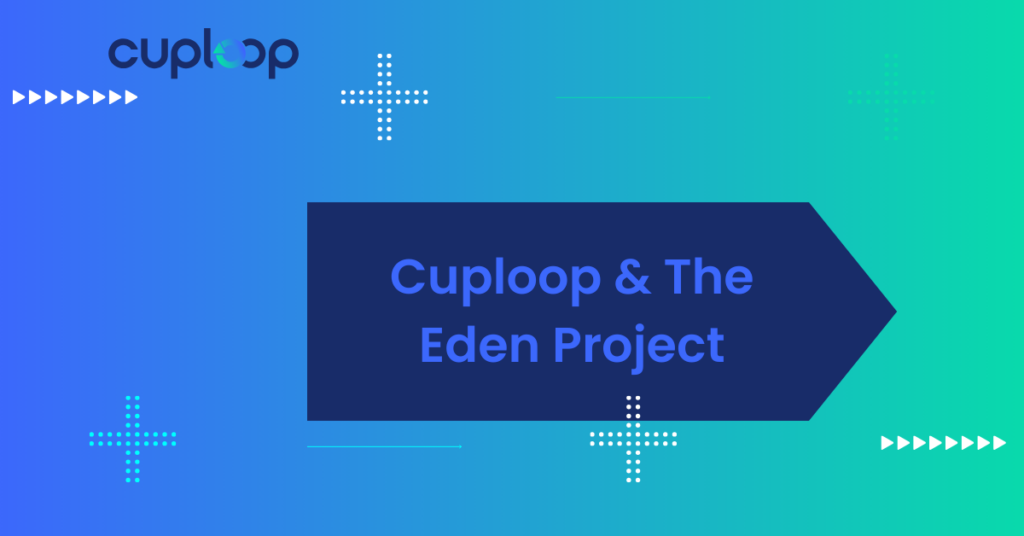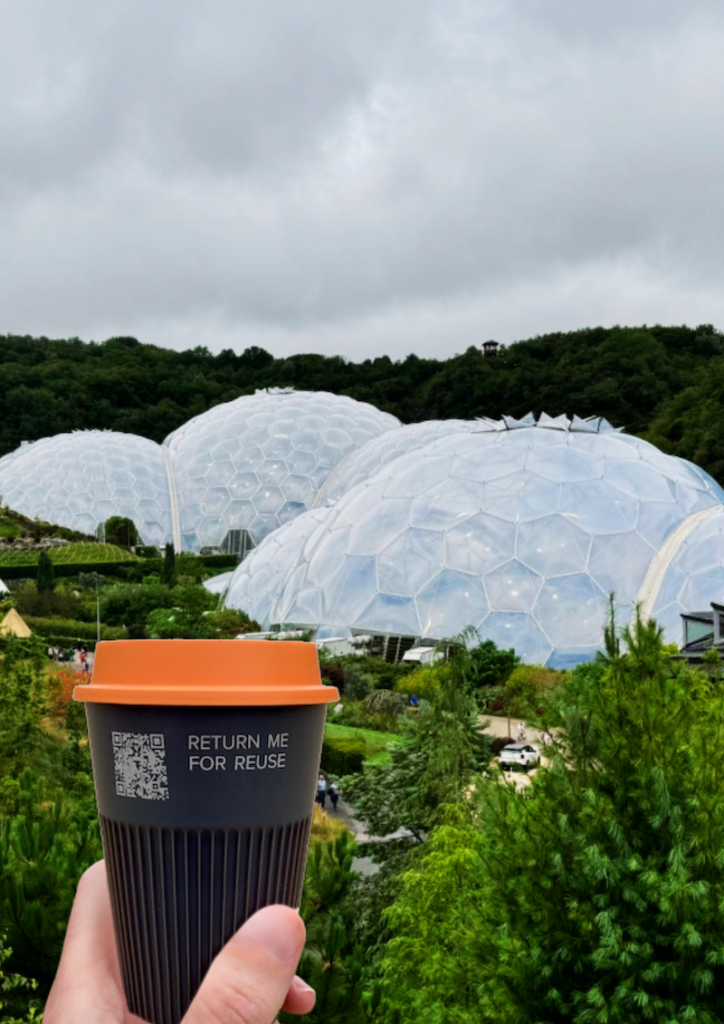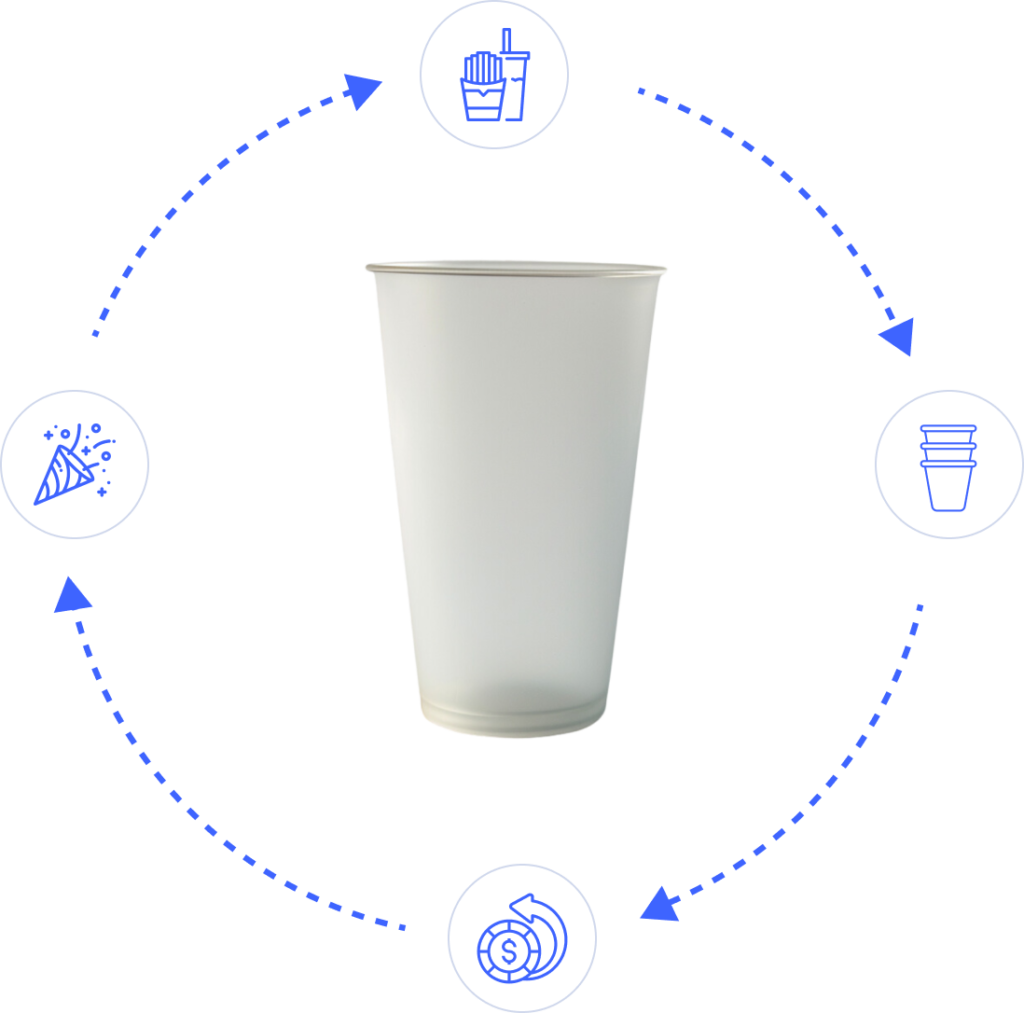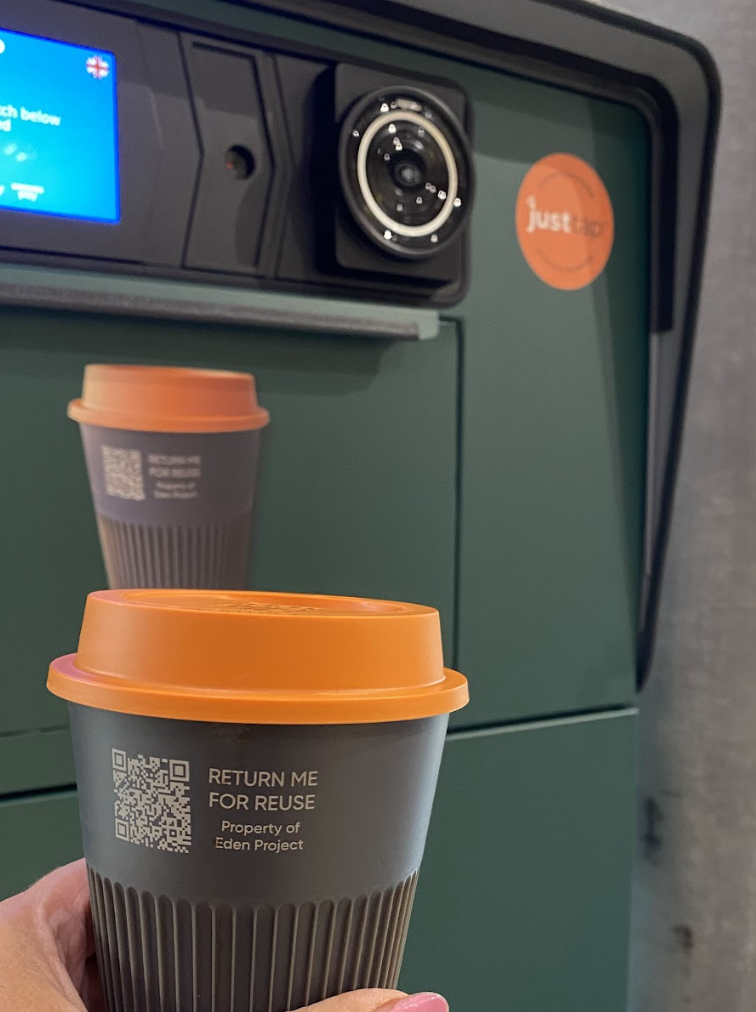Successful Launch of Smart Return Kiosks at the Eden Project

The Eden Project is a leading environmental and educational attraction in Cornwall, UK, known for its iconic biomes and commitment to sustainability. Attracting nearly a million visitors annually, it focuses on promoting environmental awareness and sustainable living.
Reducing single-use waste and minimizing carbon emissions are critical components of the Eden Project’s sustainability goals. Reusable cups and Cuploop’s RFID-enabled Smart Return Kiosks support these goals by making reuse easy and efficient. The seamless Drop, Tap & Go return system offers instant refunds, making it simple and rewarding for visitors to participate in sustainable practices.

How Do RFID Enabled Return Kiosks Work?
Cuploop‘s kiosks streamline the process of returning reusable food containers through RFID technology. Customers pay a small deposit at the point of purchase. Each cup and container has an embedded RFID tag that is automatically scanned when placed in the kiosk’s return slot. The user can insert multiple food containers at once. The system verifies the container(s) and instantly processes a refund to the user’s bank account when they tap their card or phone, using Mastercard Send. These kiosks feature Ingenico‘s Open/2500 terminal, powered by the Switchio Pay application. This system collects real-time data on returns, which helps operators manage inventory and optimize container circulation.

Implementation
To address the challenges, Cuploop, together with a local partner, re-universe, launched project at the Eden Project in August 2024. Re-universe’s innovative digital returns platform encourages reuse through deposit and holding schemes, ensuring reusable cups remain in circulation longer. The launch was completed within four weeks of sign-off.
Results and Learnings
We achieved an impressive 96% return rate at the Eden Project.
The project uncovered issues with refunds for NatWest bank account holders. Involved parties are collaborating with Mastercard and NatWest to resolve these setbacks.
Currently, two Smart Return Kiosks are in use at the Eden Project, with plans to add more in 2025.

Conclusion
Reusable projects frequently fail to monitor their food containers, resulting in losses within the system and increased environmental impact. Real progress lies in maintaining the circulation of as many containers as possible, while providing precise data on returns, reuse, and carbon savings.
With reusable cup return rates as high as 96% at the Eden Project, Cuploop’s system significantly reduces single-use waste and supports sustainability goals. This approach not only benefits the environment but also enhances the user experience by making sustainable practices convenient and rewarding.
Would you like to discuss how Cuploop can integrate into your business? Book a quick demo with Kristi!
